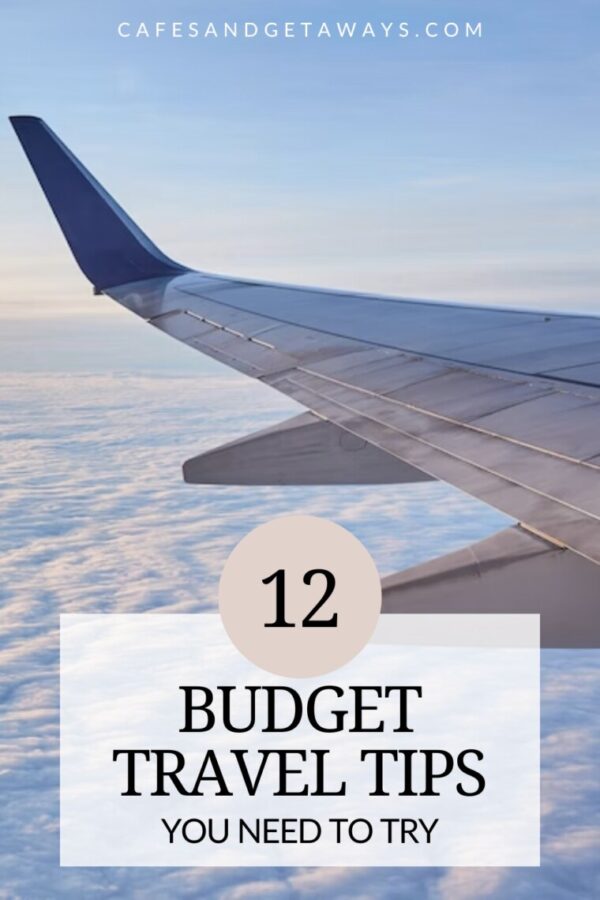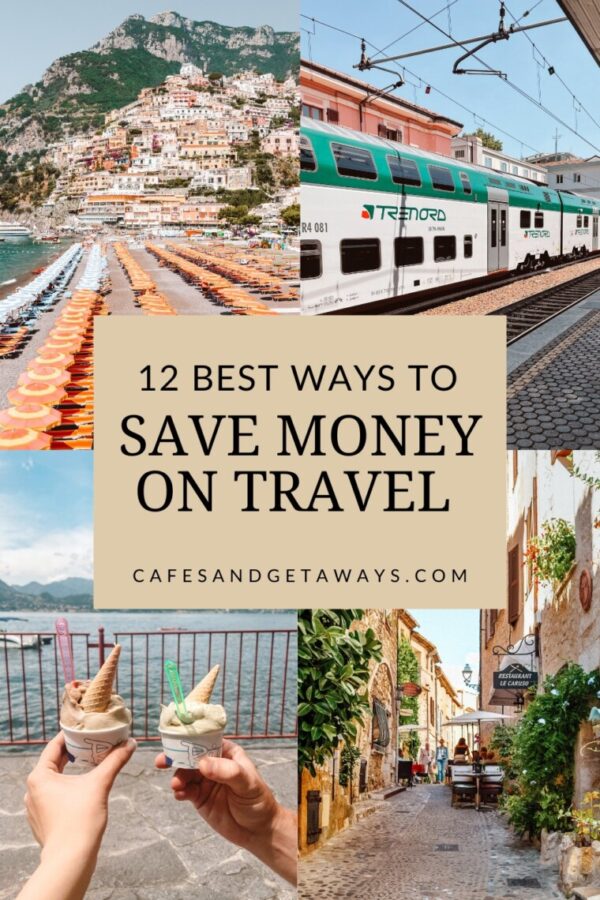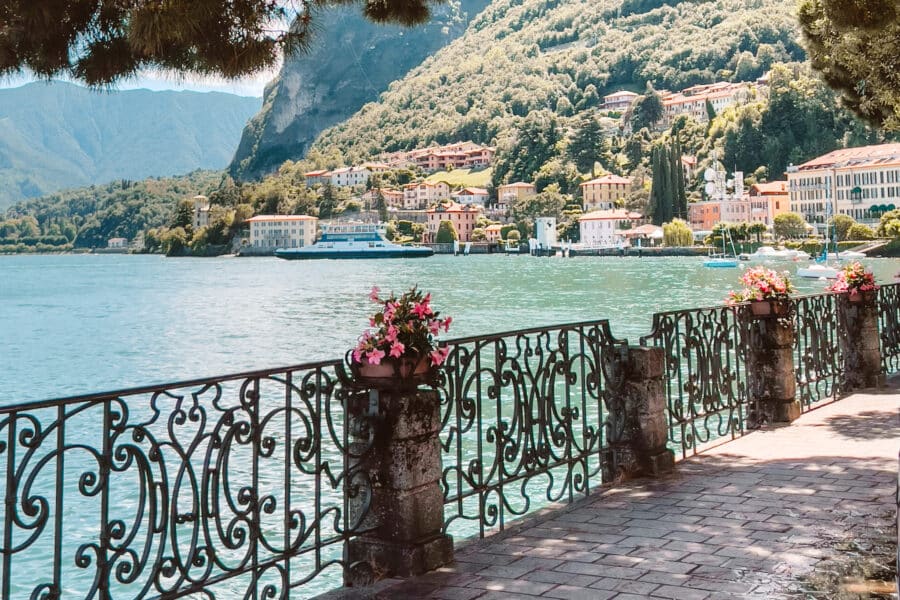Whether you are on a strict budget or not, it is always a good idea to plan where your money will be spent during your travels. And even with that plan, it is easy to overspend! Knowing some of the top tips on how to save money while traveling can help you keep a little extra cash in your wallet. You never know what unique souvenir or exciting experience you could use it on.
The following guide includes the top ways to spend less on your trip including planning when to travel and how to be smart about where your money goes.
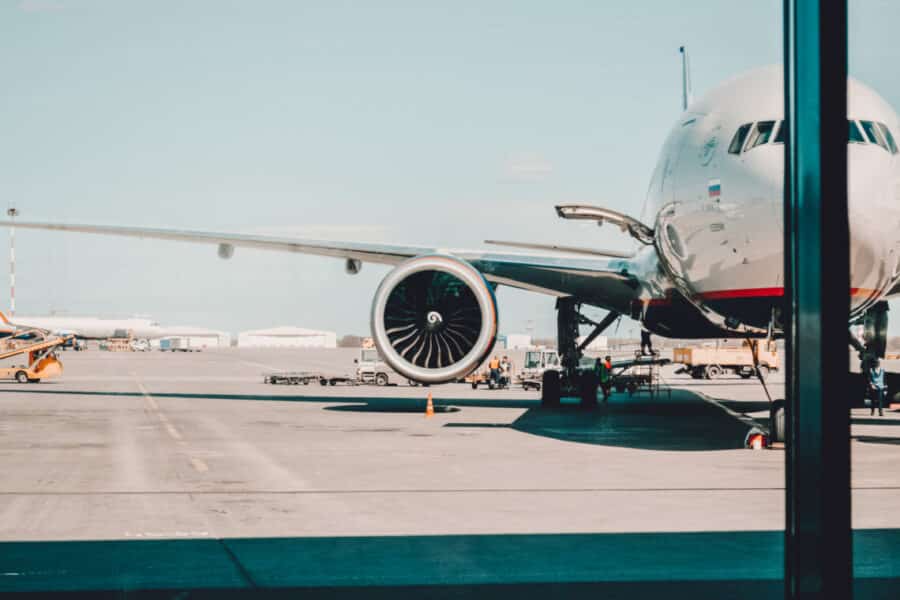
This post may contain affiliate links, which means I’ll receive a commission if you purchase through my links, at no extra cost to you. Please read the full disclosure for more information.[toc]
Travel During the Shoulder Seasons
Traveling during the shoulder season is one of the best money-saving tips for any trip. No matter where you plan to go, the peak season will always mean that prices for plane tickets, transportation, accommodations, and attractions go up.
In general, peak season tends to be around the middle of June to the end of August due to warm weather and summer vacations for families. Planning a trip in May or September can save you several hundreds of dollars on plane tickets and even a good bit on accommodations.
Traveling off-season will give you even more savings. These usually are winter months when fewer people travel to these destinations. As a result, ticket and accommodation costs drastically decrease as the demand dwindles. But, of course, popular winter destinations such as Switzerland or Norway will be busy during this time.
You also want to ensure there aren’t any holidays or events going on as those with up the price. Cities like Vienna and Brussels are known for their beautiful Christmas markets, so traveling during the holiday season will be more expensive. Places like Monaco (which stays pricey all year round) will be even more so during their famous Monaco Grand Prix in May.
More tropical destinations, like the Greek islands or the Amalfi Coast, will not be as crowded. The one word of caution when planning to travel during the off-season is to research what is available during those times. Many tourist destinations, such as Santorini, shut almost entirely down for the off-season.
Be Flexible With Your Travel Dates
You’ve decided to travel during the shoulder season but noticed that tickets are still higher than you’d like. Check what days you plan on flying, as this could again significantly impact the overall price.
For example, most people leave on a Friday and return on a Sunday, meaning these days are a little more expensive than if you fly on a Wednesday. When researching ticket prices, set your search to “flexible dates” to see if there are any additional money-saving options. Sites such as Skyscanner are also great tools for finding cheap flights.
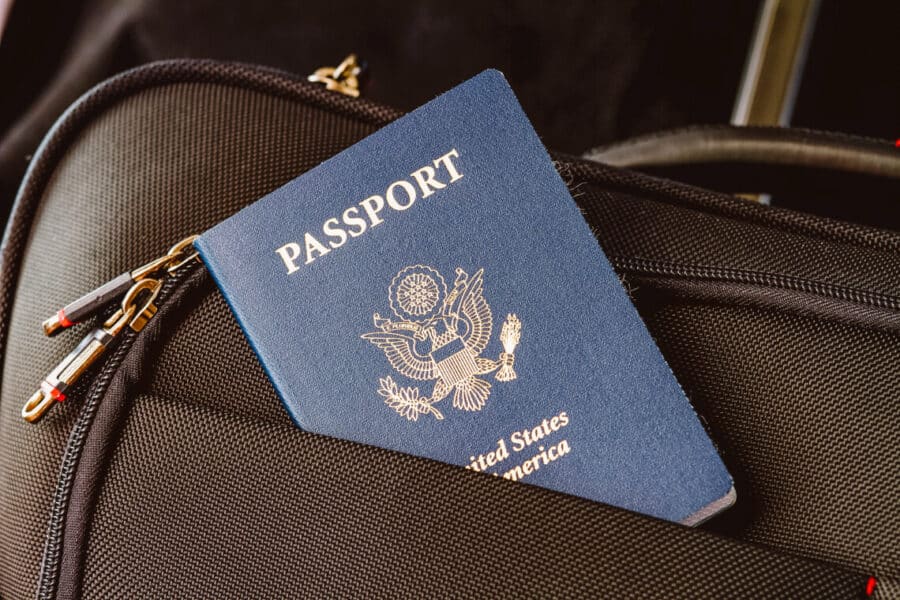
Get a Travel Rewards Card
Reward cards let you earn points for free flights and hotels simply by using them on your daily purchases. Each has its own rewards programs, such as double the points on restaurants and dining. They also have a large one-time sign-up bonus that can be enough for a round trip flight.
The Chase Sapphire and Amex Skymiles Cards are great travel rewards cards with some terrific benefits. Standard travel cards include incentives like no annual fees and one free checked bag.
Higher-level rewards cards offer additional perks such as free companion tickets and access to their member’s airport lounges, which can save you even more.
Using your card to make daily purchases, you can quickly save enough points to earn free flights, upgrades, and hotel stays.
Research and Book Your Hotel Early
Another simple but underused tip is to book your accommodation as soon as you’ve set your travel dates. The longer you wait to book your hotel, the higher the rate will be, especially in popular destinations that have a low inventory to begin with.
I remember booking our hotel for London eight months in advance. I went back to the site about four months before our trip to see if there were any new deals available and instead saw that the same room was now $1,000 more than what we had reserved it for.
In addition to booking early, do some research on where you’d like to stay. A rule of thumb is that the closer to the city center you are, the most expensive. Staying in less popular areas can save you a lot. Also, many hotels have huge savings if you are willing to reserve a nonrefundable room.

Take Advantage of Free Attractions
No matter where you travel, there will be various free things to do there. Looking for free attractions is a great way to experience a new place without spending much money. You would be surprised at how many free attractions you can find in many destinations.
For example, there are dozens of things to do in Rome that won’t cost you a penny, including the Roman Forum, Trevi Fountain, and the Spanish Steps. The churches in many places are also free to enter. You can visit the historic Pantheon and St. Peter’s Basilica without purchasing a ticket.
If you are a nature lover, you can find plenty of free things to do outdoors. With beautiful parks, hiking trails, and outdoor activities, you can easily fill an entire day up . And in many cases, you can still witness the wonders of a city’s architecture without spending time and money on a guided tour.
Again, do some research! Did you know that museums and art galleries in London are free? And that even famous museums in Paris like the Louvre are also free on the first Sunday of every month? Many attractions also give discounted and free admission tickets to EU members, students, and young children.
Stay Clear of Tourist Traps
Tourist traps can easily trick you into overpaying for things. Any time you are near a popular attraction, keep an eye out for these places.
Trust me, do not eat at these restaurants or shop at these stores. You will be charged double the price for something you could easily have purchased down the road.
Food, especially, is something you should avoid purchasing in these areas. Restaurants in touristy areas raise the prices, and the food is usually not the authentic cuisine you were expecting to experience
One of the best ways to experience a city like the locals is to ask them where to go. Many will be happy to give you some tips and guide you in the right direction.
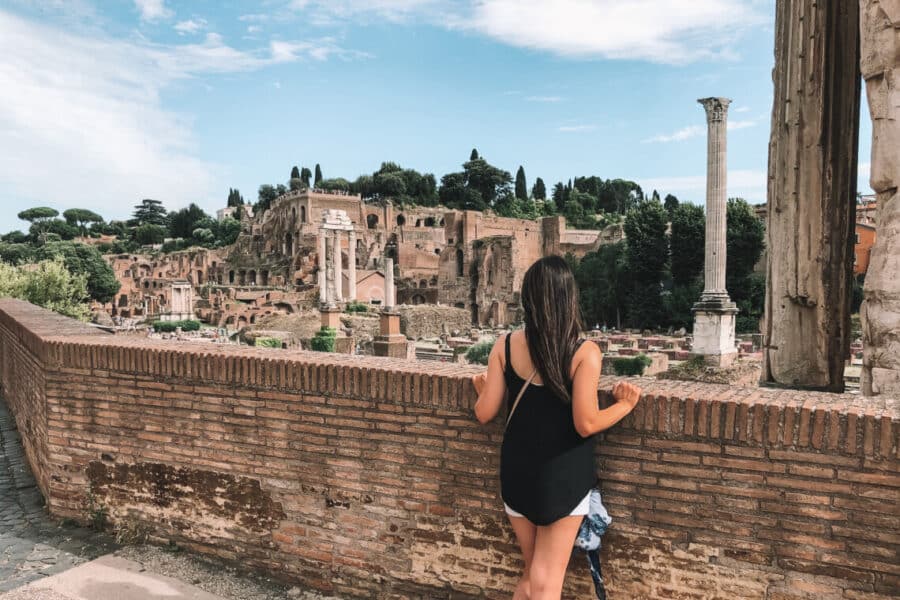
Walk Wherever You Can
Another simple way to save loads of money on your trip is to walk as much as you can. Besides being free, walking allows you to go at your own places and sightsee. Walking in a new city is one of the best ways to experience it, and you will most likely stumble across a hidden gem or two that you would miss if you were using public transportation.
Of course, some places will be too far to walk to. In those cases, try to take public transportation over a taxi. A bus or train will only cost a couple of euros, while taxis can be a huge expense if taken all the time.
Most European cities have incredibly efficient public transportation systems that are straightforward to follow. However, being in a new city without speaking the language can make using buses and trains a little more complicated. Most places now have free transportation apps that tell you exactly what train to take and what station to go to.
Research Restaurants Beforehand
As I mentioned earlier, you want to avoid those tourist trap restaurants. Most of the time, the food will be much more expensive and not as good. Instead, you will want to research where the locals eat for the most authentic meal. Even better, ask one! Some of the best restaurants we’ve tried were recommended by locals, none of which we would have known about otherwise.
Researching the best places to eat and their prices is a great way to ensure you are not breaking the bank and the food will be good. Look at reviews and other customers’ experiences before you make a reservation. And don’t assume that the most popular restaurant in the city is always the best!
TRAVEL TIP: Did you know that some places charge you more for using a table? It’s true! Large cities like Paris have an additional fee for eating a sit-down meal. So if you plan on having a croissant and a coffee in the morning, stand at the bar instead. You can save yourself a few euros.
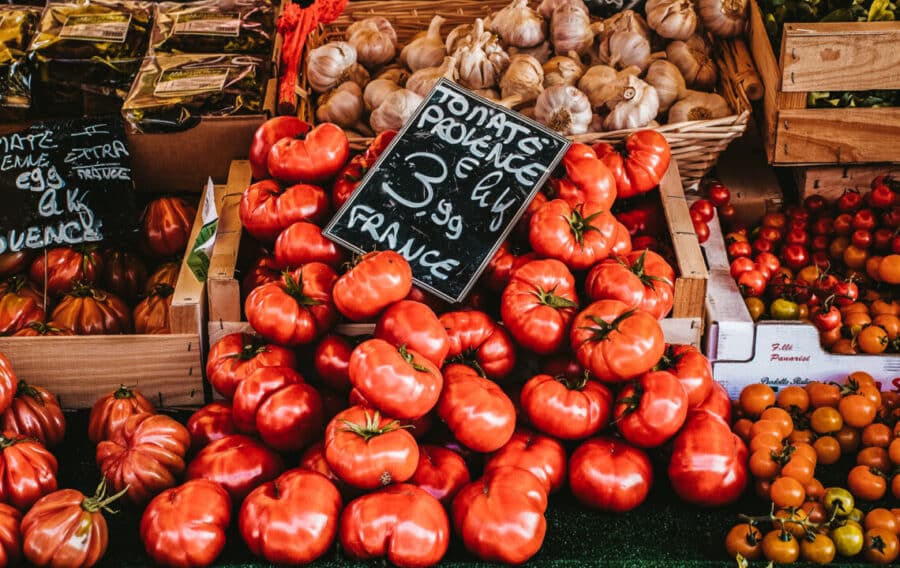
Don’t Eat at Restaurants for Every Meal
Another quick way to save money is to avoid eating breakfast, lunch, and dinner at a sit-down restaurant. Eating out for every meal can quickly add up, especially if you are ordering a glass of wine with your entree.
Take advantage of the free breakfasts many hotels offer, grab a pastry at a nearby bakery, or find something tasty at a local market. Many countries in Europe have outdoor and indoor markets where you can get fresh produce for next to nothing.
Buy some fresh ingredients and have an outdoor picnic instead of spending all that money at a restaurant. Most European cities have plenty of green spaces and parks where you can go.
And don’t rule out street food, either! Try some famous socca in Nice from Chez Thérésa for just €3 or grab some fish and chips to go in London. Not only are these cheap meals, but they are delicious too.
Make a Daily Budget and Stick to It
It is very easy to spend too much money when you’re not thinking about it. Especially on vacation when you are supposed to splurge a little. Giving yourself a daily spending limit can help keep you from going overboard with purchases.
For example, if you only want to spend $100 a day on food and know you’re going to a more expensive dinner one night, try to counteract that by having a cheaper lunch and breakfast. You may also want to spend a few days on tours and paid attractions. To offset that cost, plan not to spend money on souvenirs or extra expenses on those days.
If you are serious about your budget, having a daily spending limit can help a lot! Keeping track of your purchases and being mindful of what you have left to spend can help keep some extra cash in your pocket.
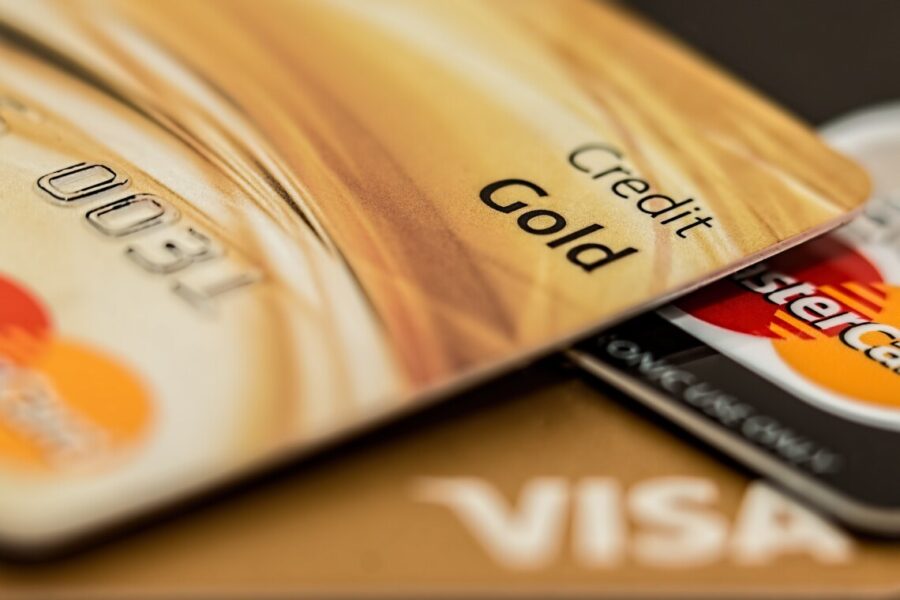
Use Credit Cards with No Transaction Fees
When traveling to a place with a different currency, you will have both an exchange rate and a transaction fee. The exchange rate can be either good or bad for you, depending on where you travel. However, you will have a transaction fee no matter where you go.
Although it is only a couple of dollars, if you get dinged each time you use a card, you can quickly rack up $50 in fees in a week of traveling without even noticing.
To avoid this, stick to cash or use a credit card with no foreign transaction fees. travel cards such as American Express will not charge a foreign transaction fee on your purchases. My go-to form of payment when traveling is my Amex Platinum Card. I save money on transactions while racking up points for my next trip.
Cash is another great way to avoid all those extra fees, but you want to carry only a little at a time. If you prefer to use cash for most of your purchases, you will need to use an ATM at some point. However, it is still better than paying foreign transaction fees for every purchase. If you need to withdraw cash, bank ATMs charge a lower withdrawal fee.
Take Advantage of the Free Water
This was one tip that took me by surprise the first time I visited Europe. Many cities have clean drinking water all over the city that is free to the public. I’ll be honest. I was initially skeptical after traveling to places where the water was not okay to drink. But, it was actually better than the bottled water.
Pack a reusable water bottle with you so that you can quickly fill it up throughout the day. Not only does it save you money, but you are helping the environment by eliminating waste.
TRAVEL TIP: Although water fountains are free, that does not mean that water at restaurants is free. Most European countries will automatically give you bottled water, which is an additional fee. If you don’t want to pay for this, specify that you’d like tap water instead.
Conclusion
With just a little extra planning, you can save a large amount of money on your trip without counting every dollar you spend. These tips on how to save money while traveling will allow you to do much more with your budget. Have other money-saving tips? I’d love to hear them!
Check out these other travel planning resources!
- 35 Europe Travel Tips to Know Before Your Trip
- The Ultimate Europe Travel Checklist
- 25 Must Have Travel Items and Accessories
Travel Planning Resources
BOOK YOUR FLIGHT |Skyscanner is the top search engine for finding and booking flights. They price check over 1,200 travel sites to help you find the best prices.
VIEW ACCOMMODATIONS |For booking hotels and vacation rentals Booking.com is a top resource . They offer some of the cheapest rates and different payment options.
PLAN TRANSPORTATION | Discover Cars is my go-to site when booking rentals. They work with hundreds of companies worldwide to help you find the best car for your needs and budget.
SCHEDULE YOUR TOURS | There are many top companies available in Europe. Get Your Guide is one of the best sites for tours, excursions, and activities. Viator is another terrific website for all types of experiences.
GET TRAVEL INSURANCE | Having travel insurance is always a good idea. World Nomads is one of the top travel insurance companies. It will cover you if you must cancel your trip or if something unexpected happens.
Check out the resource page for additional travel planning resources.
Pin it For Later
